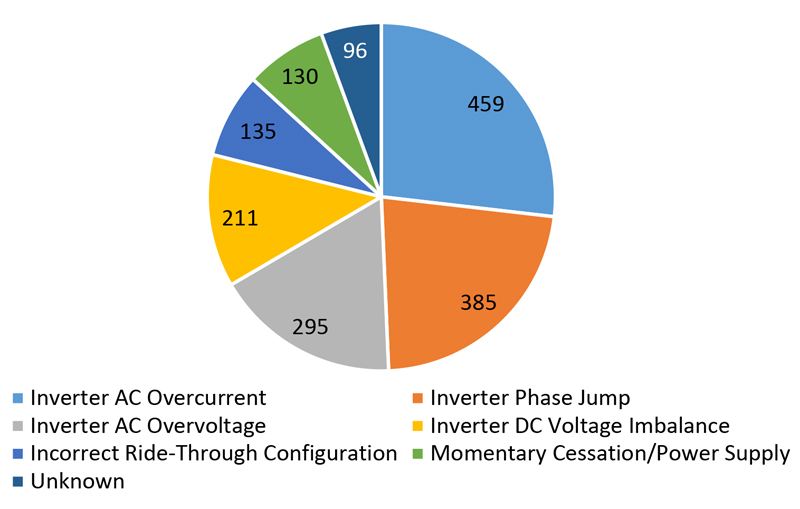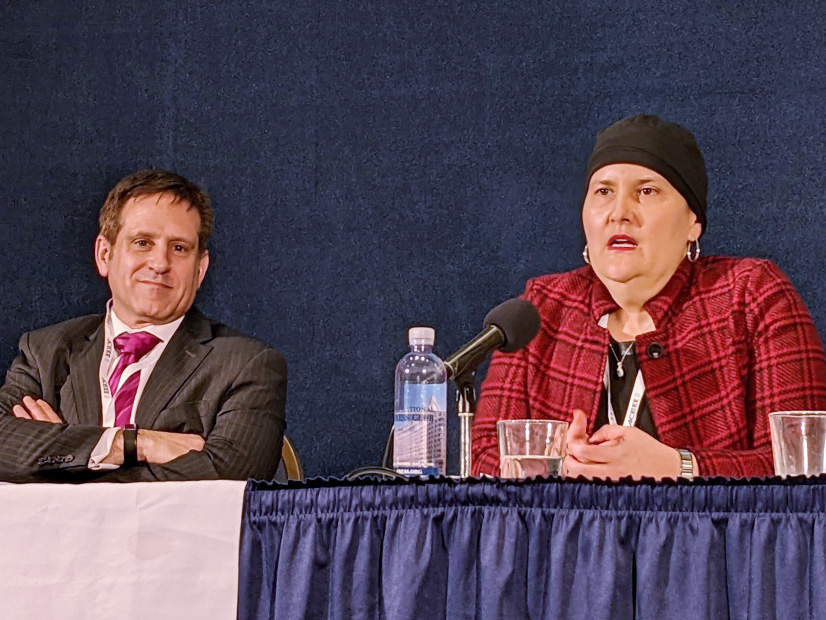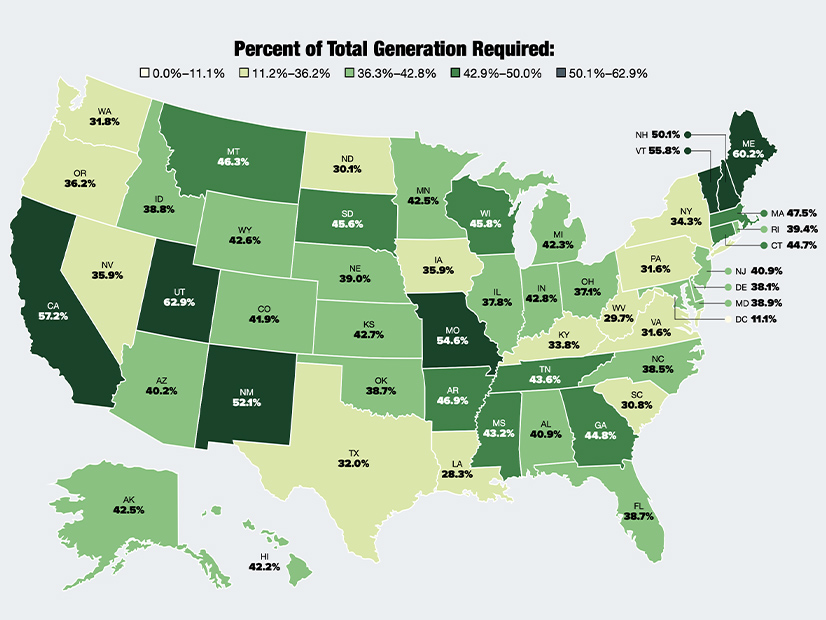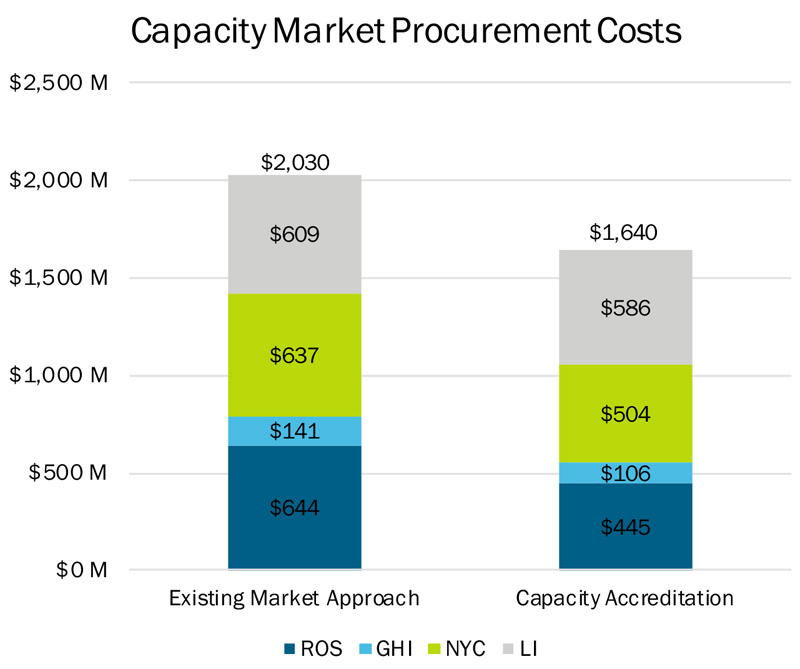Texas lawmakers once again put the heat on the state Public Utility Commission and ERCOT last week, raising questions over the PUC’s proposed electricity market redesign and how the two organizations work together.
A state House committee took first crack on Dec. 5 with a public hearing on the PUC’s proposed market changes. Two days later, a Senate sunset review committee examined the two organizations’ decision-making process and the commission’s lack of resources.
The two public meetings came a week after politicians complained the PUC’s recommendation would do nothing to quickly add gas-fired generation. They also asked the commission to hold off on any final market designs proposals until it gets final approval from the state legislature, which opens its 88th biennial session Jan. 10. (See Texas Politicians Assert Themselves in PUC’s Market Redesign.)
PUC Chair Peter Lake bore the brunt of lawmakers’ questioning before the House State Affairs Committee and the state’s Sunset Advisory Commission. He again defended the performance credit mechanism (PCM) that would require load-serving entities to buy performance-based credits from generation resources that meet reliability standards.
The market construct has never been used by a U.S. grid operator and was not recommended by the consulting firms that spent several months this year reviewing the PUC’s various proposed designs. (See Proposed ERCOT Market Redesigns ‘Capacity-ish’ to Some.)
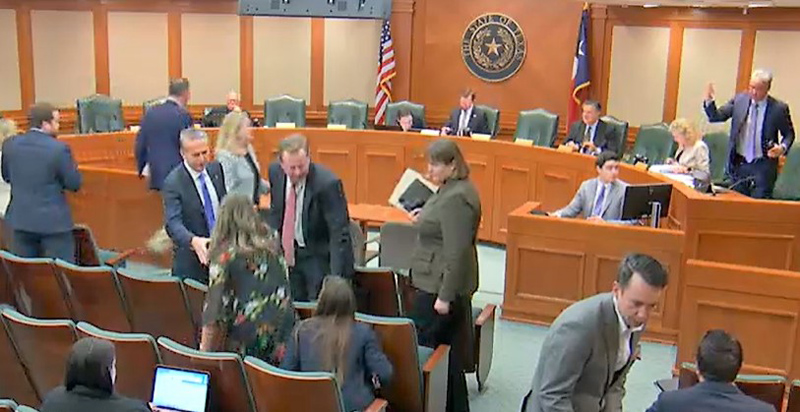 ERCOT CEO Pablo Vegas, PUC Chair Peter Lake (left-right, facing seats) greet onlookers before the House committee hearing. | Texas House of Representatives
ERCOT CEO Pablo Vegas, PUC Chair Peter Lake (left-right, facing seats) greet onlookers before the House committee hearing. | Texas House of Representatives“The bottom line is the PCM indicates that we would deliver 10 times improvement in reliability for a fractional increase in costs, or any increase in costs at all,” Lake said.
Rep. Todd Hunter (R) asked Lake whether the PMC guarantees “new generation.”
“Yes, sir,” Lake replied.
Noting that Lake is not a lawyer, Hunter said, “Always remember when you said, ‘guarantee.’”
Lake was unable to provide Hunter a definitive date for how soon ERCOT would see new gas generation, although renewable generation continues to be brought online. That depends on “regulatory certainty,” Lake said.
Hunter asked the same question of the Independent Market Monitor’s Carrie Bivens, who said no capacity market design, as many view the PCM, would guarantee new generation. Katie Coleman, representing the Texas Association of Manufacturers, agreed. She said capacity markets “simply increase customer costs” while hoping for new generation, leading to only increased regulatory uncertainty.
“We are concerned about a scenario where we are paying very high costs and not getting additional reliability,” Coleman said.
Customer costs have become a large concern in Texas. According to the U.S. Energy Information Administration, retail prices there rose from $0.09/kWh to $0.11/kWh in the last year. Customer bills were the nation’s seventh highest before this year, Stoic Energy consultant Doug Lewin said.
The PCM design relies on load-serving entities purchasing performance credits that are awarded to resources through a retrospective settlement process based on availability during the 30 hours of highest risk, according to their load-ratio shares during those same periods. This allows generators and LSEs to trade PCs in a voluntary forward market, with generators required to participate in the forward market to qualify for the settlement process.
However, as Lewin pointed out, the PUC has not analyzed which 30 hours the PCM would have paid last year in a market where ERCOT “administratively” sets the demand curve.
“One of the biggest problems with the PCM is it will take fantastic foresight by ERCOT to set the demand curve AND for the generators to anticipate and be ready for those 30 hours,” he tweeted. “If it’s hard to predict (and it will be), they may not be ready.”
Lake said the PUC plans to vote on its preferred market design Jan. 12, two days after the legislature goes into session and despite a letter from a bipartisan Senate committee directing the commission to hold off on “holistic” market designs without “further consultation” with lawmakers.
Sen. Charles Schwertner (R), who chairs the Business and Commerce Committee that sent the letter after a Nov. 17 hearing on the proposed market design, also chairs the Sunset Committee. He told Lake during the Sunset Committee’s Dec. 7 hearing that he had yet to receive a response to the Senate’s letter.
“I’ve been preparing for this hearing and another one earlier this week, but I look forward to responding to that letter,” Lake said.
Before the House committee earlier, he said the PUC would not “operationalize anything before getting guidance from you all and the Senate.”
“We have asked you to make recommendations, [and] you are making them,” Rep. Richard Peña Raymond (D) told Lake. “I don’t really get why [members of the Senate committee] don’t want you to make them.”
The PUC will command the floor when it holds an open meeting Thursday. It has asked ERCOT stakeholders and the public to provide feedback on the PCM and five other market designs by noon Thursday.
Sunset Commission: PUC ‘Woefully Underfunded’
The Sunset Committee’s hearing followed the release of the Sunset Advisory Commission’s report on PUC, ERCOT and the Office of Public Utility Counsel. The review was accelerated by two years after last year’s disastrous winter storm.
According to the report and its six areas of concern, the PUC and its staff of about 200 is “woefully underfunded” and dependent on “those it oversees for [the] analysis it needs to make strategic decisions.” The report also found the regulatory commission does not have the manpower to analyze data and lacks policies and procedures in some areas.
“We were surprised to see PUC only has about 200 staff to not only regulate three industries, but also to implement significant changes to improve the grid, while also navigating its new governance structure and relationship with ERCOT,” the Sunset Advisory Commission’s review director, Emily Johnson, told the committee.
In comparison, the Texas Railroad Commission that regulates the state’s oil and natural gas industry has about 1,000 staffers.
“The lack of resources, as you all have identified and the Sunset Commission identified, has made implementing all of the tasks you gave us very, very difficult,” Lake said. “We have essentially the same amount of employees but have done 200% more rule-makings.”
Sunset Commission staff said they support the PUC’s efforts to fund a data analytics team and to bring in additional engineering skills. With that, they said, the PUC “cannot truly fulfill expectations” to ensure ERCOT reliability.
The report dinged the PUC for its informal directives to ERCOT, saying that means the agency “does not always adhere to best practices for openness, inclusiveness, and transparency.”
Schwertner quoted the report and said it deserves focus: “The state would benefit from a more clearly defined, fully transparent process when decisions that affect the entire electric industry and millions of Texans are made.”
Lake said the commission has improved in that area and will wait on further direction from the legislature.
Sunset Commission staff also authorized ERCOT to develop a policy to exclude the PUC’s commissioners from participating in certain Board of Directors’ executive session discussions. They said this would allow the board to review sensitive matters “without PUC influence but would not inhibit the commission’s ability to adequately oversee ERCOT.”
The grid operator said it supports the recommendation.
